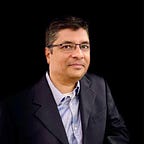The slow death of Indian languages
Look at the headlines. India will become the most prominent English-speaking country in the coming years. Currently, it is the second largest English-speaking country, with 10% of the Indian population (125 Million).
British ruled India for over 350 years, and although India ousted the British, the English language invaded India. In the past 75 years, English has grown manifold.
In India, children start schooling from three years until college (mostly). Even though the local language is part of the curriculum, parents treat the local language as a necessary distraction to learning English, which is the language of economic mobility.
Around 20 or 30 years back, children spent their ten years of life learning their local language. But now, it has changed. English is the medium of instruction from kindergarten. Today’s kids think and dream in English.
A generation back, Indians find it hard to articulate thoughts in English. Indians have unique accent issues when pronouncing words like Potato, and they hit the upper palate of the mouth to pronounce English words. Indians are habituated in their mother tongue to curl and hit the hard palate for the mouth. English has neither of that. In linguistics, it is called retroflection, which is unique to Indian languages.
If you happen to be in Urban India, you can observe the English language infusion in their spoken language. Almost most of the nouns used in the sentences are in English. Only the verb and the connecting words are in the local language. If you want to speak in India, learn the verbs and connecting words and fill in with English. You can comfortably sail through.
A new mix of hybrid languages is evolving, whether it is called Hinglish, or Tanglish (Tamil+English). Currently, there is a strong undercurrent to hold on to the spoken language, but eventually, the language of the economy (English) will be the norm.
